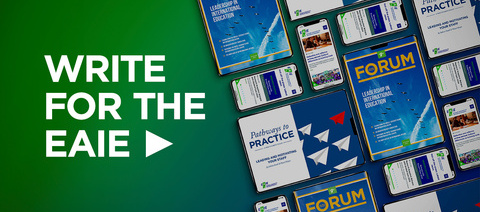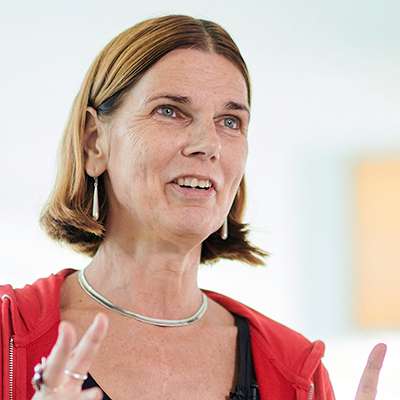Write for the EAIE
Become an EAIE author
The EAIE author community is ever expanding. We welcome submissions from members and non-members alike, and from internationalisation professionals in all capacities. You can find specific information on how to contribute to our two main platforms below.
Why become an EAIE author?
Upcoming Forum themes
2025 Winter Forum – Skill-building for the future
Skill-building for the future
Deadline to submit: 04 August 2025
The European Commission recently published the ‘Union of Skills’ communication, proposing an agenda for retaining talent, boosting skills, and making Europe more competitive— also underlining the need to recognise credentials across borders.
The global demand for skills is, in fact, rapidly evolving, driven by the green transition, technological change, demographic shifts, societal needs and geopolitics. So how can (international) higher education play its role in effectively preparing people – with the right skills – for the future? Universities and universities of applied sciences, polytechnics, vocational training institutions, and lifelong learning initiatives must work in new and different ways to equip learners with future-proof competencies. How can internationalisation be part of the solution?
The Winter 2025 issue of Forum magazine will focus on this key question and seek input from the EAIE community and beyond on this timely topic.
We welcome diverse perspectives on these issues, particularly around:
-
Higher education’s skill-building role: How can higher education institutions balance employability demands with helping students develop cross-cultural sensitivities and personal attributes that transcend ‘job readiness’ strictly speaking?
-
Global talent mobility: Can international student flows address skill gaps through brain circulation without exacerbating the brain drain in their home countries?
-
The skills that matter most: What are the most important skills students need to develop today? How can HEIs teach meaningful skills (like intercultural competence) to domestic and international students globally while meeting local job market skill needs?
-
Micro-credentials as a tool: What are the benefits and challenges of a reliance on micro-credentials for skill-building as students move across borders?
-
What role for language skills? In an era of AI-powered resources and the widespread use of one dominant language, what is the place of national and other language skills? How do we balance the need for a lingua franca with an interest in cultivating diverse language skills?
-
Hard skills vs. soft skills: Will prioritising "technical skills" (such as STEM) divert attention from other crucial areas for skill development, for example, addressing ‘the human side’ of healthcare and education?
-
Managing multiple missions: In a highly competitive (global) environment, how do HEIs respond to the demand to develop the skills of the current and future labour force while balancing other institutional priorities?
We are happy to receive real-world perspectives—success stories, critiques, or case studies—on developing or applying skills across borders. How do we make education flexible and relevant for employment in different places and times without losing depth and focus on education itself? How do we balance the skills needed for local development with the graduates’ preparedness for global competition?







